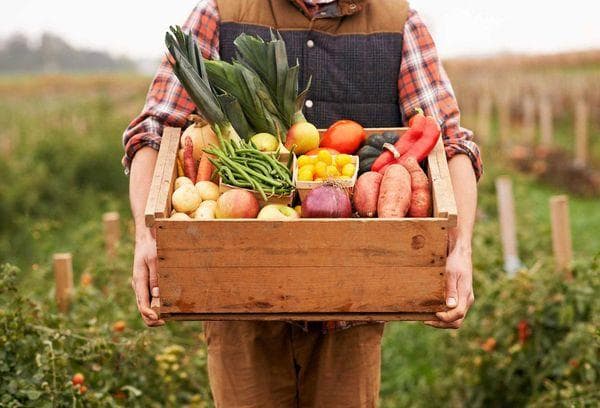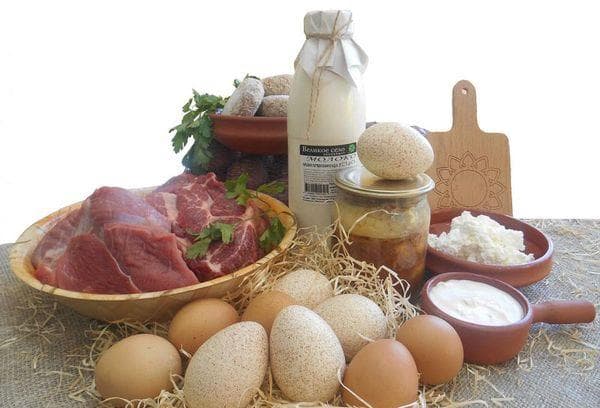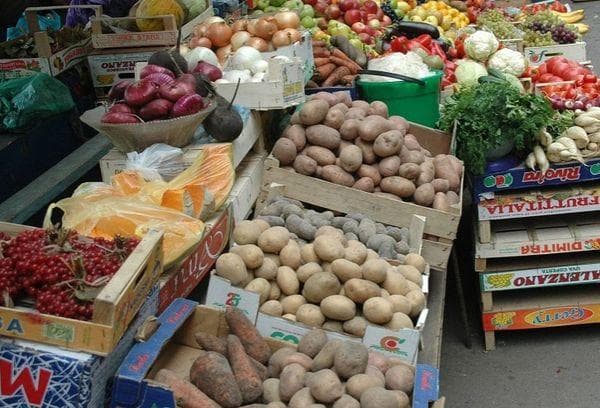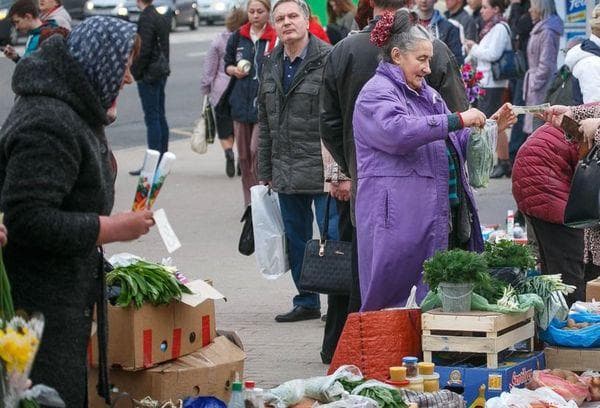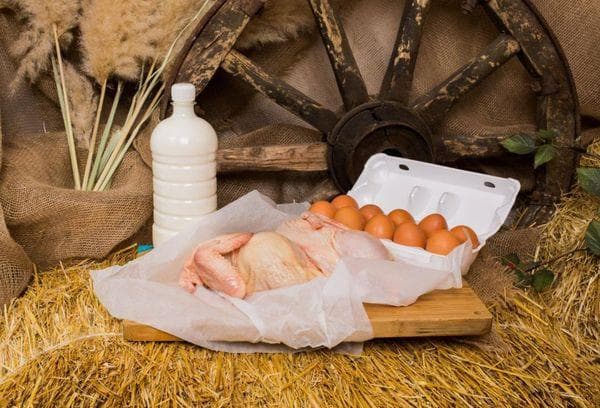How not to get poisoned, and is it worth buying village products at the market to be healthy?
Each of us has come across products in stores where the composition is more reminiscent of the periodic table and does not contain anything natural. There are, of course, vegetarians and originals who prefer vegetable oil, palm oil instead of village milk or soy instead of a piece of meat, but this does not apply to my family. For many years I have been trying to buy farm products at a spontaneous market, rather than going to the store. I want to share my experience on how to choose natural milk, cottage cheese, sour cream or semi-finished meat product and not get poisoned.
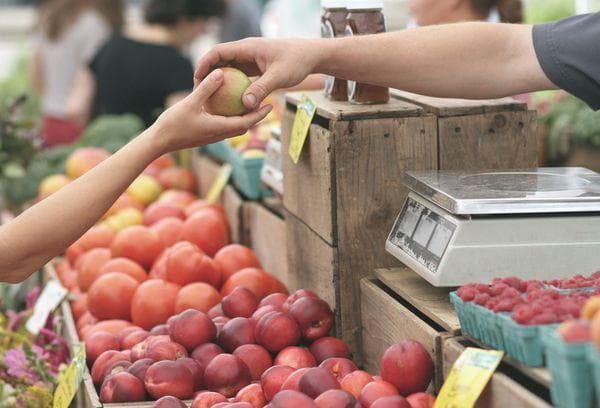
What are the health benefits of farm products?
Natural production is safe for both the environment and humans. There is no point in enriching the product with additional vitamins and minerals; nature does this for us. And if a cow or pig is raised in good conditions and on natural grass, then the meat and milk will contain all the necessary composition of nutrients that the body needs.
Most small producers who trade in spontaneous markets do not use chemicals when growing vegetables and fruits for rapid ripening. You rarely find antibiotics or illegal drugs in natural meat, because farmers eat everything they grow themselves and feed their families, and only sell the excess.
The taste of the product is of no small importance - from a small producer it is rich and “full”, which a store shelf cannot boast of, even with the “eco” label.
What dangers can farm products pose?
Large productions organize quality control at all stages, which is regulated by the state, which a small farmer cannot boast of. At a spontaneous market you can buy a “pig in a poke”; it’s not a fact that you will get poisoned, but the benefits of natural milk, meat or vegetables will be minimal.
If farm animals are not properly cared for, products can become contaminated with pathogenic bacteria, which can lead to dire consequences. Therefore, if there is the slightest doubt about the integrity and cleanliness of the seller, it is better to refuse the purchase.
The optimal and safest option would be to purchase farm products from your grandmother in the nearest village, where you can guarantee that she eats them herself and looks after her farm or garden at the proper level.
How to make a purchase at a spontaneous market
If your family has decided to use only healthy food, then when you come to a place with trade counters, you need to know the rules for choosing farm products. To begin with, this will help you identify your seller from whom you can purchase products without fear for the well-being of your loved ones.
When to come shopping
In this case, it is worth sacrificing your morning sleep and coming to the market before 9 am. Farmers usually start trading early and sell their goods before lunch; those who remain after either deceive buyers or offer low-quality products.
Market size
It is of no small importance if you are thinking about purchasing healthy food.There is an unspoken rule: the more trading rows there are in the market, the more likely it is that under a farm product they will sell you goods from a nearby production facility, bought by weight. You should not shop in the center, where rent for a place forces sellers to cheat and deceive; it is better to take a closer look at the outermost counters.
From whom can you purchase goods?
Before approaching the product you want, observe how many potential buyers are nearby. If trade is “brisk”, it has been tested by other lovers of healthy and wholesome food, you can purchase a small amount of the product for testing.
It is worth paying attention to the appearance of the seller; the cleaner and neater he looks, the more meticulous he is about his household.
Draws attention to the season
It is impossible to buy fresh locally produced vegetables and fruits in deep winter. The shelf life of products from farms is very limited, and if they are sold outside the growing season, then they cannot do without chemicals.
Meat and milk, on the contrary, are best purchased in the cold season. Small producers cannot afford to transport goods in refrigerators, so they sell them in small quantities in the summer or can sell them longer in the winter.
We look at the color and study the aroma
A pronounced smell or color indicates the use of chemicals that farmers do not add to their products. Vegetables and fruits grown on your own farm cannot be perfectly smooth and beautiful like in stores; small defects on the skin should be welcomed. Dairy and meat products must have a delicate aroma and be free of foreign odors.
Rules for choosing different products
At the spontaneous market you can buy everything that can grow on the ground or in a flock.But it is impossible to determine how a cow or pig was kept from a piece of meat, so a few useful tips will help you choose a healthy and safe product.
What to look for when buying a farm product:
- Chicken. First of all, you need to touch the carcass; the skin should be soft and have a yellowish tint. Farmers burn the remaining fluff on fire, so a little pollination is acceptable and even encouraged. If the chicken is less than 1.5-2.0 kg, it is a laying hen, which will make an excellent rich broth. It is better to purchase large carcasses for frying and preparing second courses.
- Meat. You need to press the selected piece with your finger; if it is fresh, the dent will immediately smooth out. Look at the color: pork should be pink, beef should be red. Ask the seller to make a cut on the piece and inhale the first aroma; it should not cause unpleasant associations.
- Vegetables and fruits. Never buy apples or tomatoes with a perfectly smooth surface and shape, which indicates the introduction of pesticides and chemicals during the growing period. The farm product often has small wormholes and irregularities.
- Egg. The shell must be smooth, shiny and clean, only then can such a product be called dietary and fresh. Slight roughness indicates that the egg has been stored in the refrigerator for more than a week, which increases the likelihood of contamination by pathogenic bacteria.
- Milk, sour cream, cottage cheese. Color and taste directly depend on the season of purchase. In summer, dairy products have a yellowish tint and a sweetish taste; in winter, they are slightly sour and have a white color.
If you follow all my recommendations, you can find your seller who will provide your family with healthy and safe products.Every self-respecting manufacturer, regardless of the size of the farm, will offer only the best product on the market.
